



Whatever Is Worrying You
Please contact me for further support and advice.
Discover more about the wide variety of subjects I can support you with, including but not limited to, emotional support, mental health issues and also subjects covering life events and issues.
if you have something other than what is listed below in mind, then please do feel free to get in touch with me.
You are welcome to contact me for further advice on how to begin your sessions
Life throws us many curve balls and sometimes we need a hand catching them, so never be afraid to reach out for support.
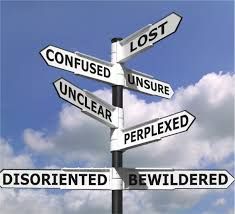
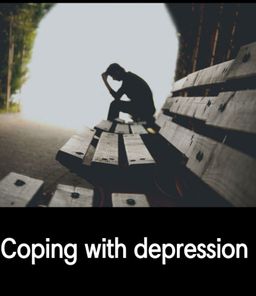
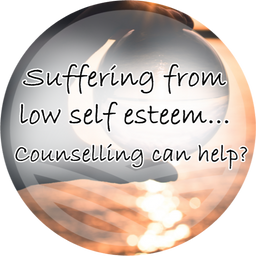

Mental & Emotional Well-being
About Depression
Depression can be a devastating illness that affects your body, mood, behaviour and thoughts. It is not a sign of weakness or failure, and it's not something that can be changed overnight. Without treatment, symptoms can be present for years, preventing you from functioning to your full ability.
Therapy can help you get to know yourself better, clarify issues that matter to you and develop your potential. It gives you the opportunity to work in ways which promote your ability to resolve problems, or to develop coping skills for things which cannot be changed.
Self-esteem
If you have low self-esteem, you may view life in a negative way which makes things seem hopeless or pointless. You might think you are worthless, and that other people are better than you. You may have difficulty saying what you really feel, or you may lack the confidence to be assertive. As a result, you may feel that people take advantage of you and treat you badly. Therapy can help you explore the way you feel and change your view of yourself and others.
Stress
Stress can be a positive thing and help you achieve your goals. But too much stress can put your health at risk and lead to physical, mental and emotional problems. Therapy could help you to manage your life differently or support you in developing coping strategies.
Life throws us many curve balls and sometimes we need a hand catching them, so never be afraid to reach out for support.
Anxiety & Panic Attacks
When is the right time to seek help?
Anxiety is a problem that can get worse if the stressors continue to build up. People may feel ashamed to ask for help or believe that it’s not ‘that big a problem’, thus covering their feelings and dealing with it alone.
It’s important to know that you deserve support and, as lonely as you feel, people care.
If you’re not comfortable talking to a loved one, there are many other platforms available. Anxiety counselling give you the opportunity to talk to people who understand you.
Treatment for anxiety
If you are experiencing anxiety, it’s important that you contact your doctor. They can assess your feelings and symptoms, and discuss a suitable treatment option. Anxiety treatment aims to reduce symptoms and teach you coping methods - so that you can manage feelings before they become too severe.
Anxiety counselling
Counselling for anxiety is one form of treatment. Talking to a counsellor can help in many ways, including helping you understand what may be causing your anxiety, and teaching you coping techniques. There are many types of talking therapies available, though the most commonly prescribed is cognitive behavioural therapy (CBT).

“It’s OKAY to be scared. Being scared means you’re about to do something really, really brave.”
Your heart is precious so take care of it.
You need to be valued and respected.
You deserve to be heard.
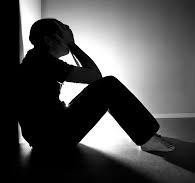
Self Harm
Self harm can be a scary and lonely experience and getting support can be really important.
Sometimes the pain we feel inside can be so strong and hard to bear that we wonder about options that involve harming ourselves. It takes courage to be able to talk about this and ask for help. its also a positive first towards feeling better
Once in a cycle of self-harming, it can be difficult to stop. Getting professional support can help you make changes. There are different ways to go about getting help and for many, a combination of self-help techniques and professional support is key.
It is OK to feel nervous about asking for help. It takes a lot of courage to speak up, but remember you are worthy of support and have the right to receive help
It has been shown that counselling can be very helpful for people who self-harm. Counselling offers you space and time to talk about your feelings in a safe, non-judgemental and confidential setting
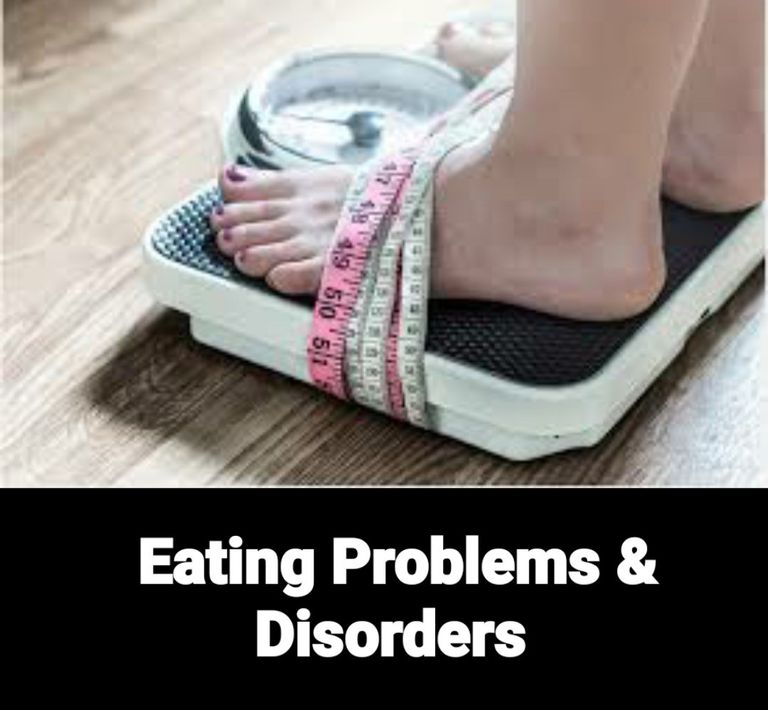
Eating Problems & Disorders
Food can become a way to cope with emotions and the repetition of this coping mechanism can become a habitual behavioural pattern and an addiction.
People with eating problems may feel reluctant to talk to someone about what they're going through. If they suspect a problem, they may feel ashamed, embarrassed or that they have it under control, which can make seeking help difficult. Fear can play a big part in the way eating disorders work and even if the person wants help, they may be afraid of taking the next step.
Recovery will mean changing eating behaviours which can be a terrifying prospect for someone with an eating disorder. While this can feel daunting, the aim of recovery is to fight that fear and regain a healthy relationship with food and themselves.
Whether the problem is more recent, or you’ve been dealing with it for a while, you deserve support and recovery is possible. If you are worried about anything, find someone to talk to, whether it is a friend, family member or a professional.
Remember you are not alone

Anger
Anger is a normal emotion, but it can become uncontrollable and create problems for you, your family and your personal relationships. Anger can stop you thinking clearly, make you act impulsively, or may make you aggressive and violent towards others.
If you find it difficult to talk about how you feel, you may suppress your anger or turn it inwards. This can lead to problems such as:
- Eating disorders
- Self harm
- Drugs
- Alcohol addiction
Counselling and working on Anger management can help you find the cause of your anger and provide ways to control and change your behaviour.
Talking about anger problems with an experienced counsellor, can help you explore the causes of your anger and ways to manage it. This can help you work through your feelings and improve your responses to situations that make you angry.
Counselling is usually a short-term treatment where you might talk through a specific issue – such as outbursts of anger with your partner or in the workplace – and try to understand how you could manage those situations differently.

LGBTQ+ Counselling
Some possible issues people can face
Coming Out
Identity
Acceptance
Discrimination & Bullying
Speaking to an experienced and trained counsellor in LGBTQ+ worries and issues that you could possibly be facing around your identity or sexuality can be beneficial
Here are some of the issues iv supported other clients with.
- Finding it hard to accept your sexuality
- Coming out
- Coping with other people’s reactions
- Low self esteem and low self-confidence
- Fear of violence or abuse in public places
- The impact of bullying and discrimination
- Feeling as if your body does not reflect your true gender
- Transitioning
Individuals coping with gender dysphoria often suffer great stress as a result of hiding their identity.
This is why it is so important that we speak about these issues.
Society needs to understand and be more aware of the issues and feelings many people experience.
Talking about it and supporting each other is the first step to breaking down the stigma, and helping trans people feel more comfortable in reaching out and asking for help.
Nobody should feel they have to keep quiet about who they are.
If you develop a mental health condition, talking therapies can help you find new ways of coping and either overcome or manage your feelings.
What’s important is for you to find a counsellor who you trust and feel able to talk to openly about your experiences.
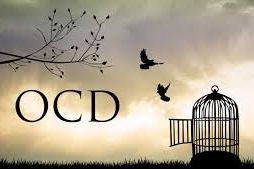
Obsessive Compulsive Disorder
(OCD)
Obsessive compulsive disorder (OCD) involves intrusive and obsessional thoughts, often followed by compulsive urges. These obsessions can be overwhelming, and the only way a person can relieve these intrusive thoughts is to repeat an action until they are suppressed.
The four key behaviours that contribute to OCD are:
1. Obsession – An intrusive, persistent and uncontrollable thought that enters your mind.
2. Anxiety – You start feeling stressed and anxious due to the obsession.
3. Compulsion – You find a compulsive need to exercise repetitive acts or behaviours because of the stress or anxiety that the obsession has caused.
4. Temporary relief – A temporary relief from the stress or anxiety is gained from the compulsive behaviour. This cycle repeats when the obsession returns, usually soon after.
Obsessions
If you have OCD, your obsessions will most likely revolve around fears, worries, impulses or even images.
You may be aware that your worries and fears are irrational, but you may find it difficult to control them. Additionally, the more you try to fight them, the more prominent they become.
If you relate to these symptoms and are worried you may be suffering from OCD, a visit to your doctor is recommended for a formal diagnosis.
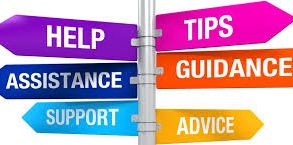
OCD Counselling & Treatment
The four main areas are checking, hoarding, contamination and intrusive thoughts/ruminations.
Checking
The types of things that people with obsessive compulsive disorder may feel the need to check in order to prevent damage.
Hoarding
Hoarding refers to the compulsion to accumulate items. It is considered to be a compulsive disorder symptom when the hoarding of items interrupts day-to-day life.
Contamination
This is the obsessive fear that something needs to be cleaned or washed out of fear of contamination, and it can arise in a number of different situations that may make an OCD sufferer feel uncomfortable:
Ruminations
In the case of obsessive compulsive disorder, ruminations refer to a prolonged phase of thinking about a theme or a question that can often have a religious or philosophical context.
OCD treatment
Obsessive compulsive disorder is a treatable condition, and counselling, in particular, is advised for helping sufferers to take back some control over their OCD symptoms. Cognitive behavioural therapy (CBT) in particular is recommended.
CBT for OCD
Cognitive behavioural therapy is a talking therapy that aims to help overcome problems by recognising and changing the way an individual thinks and behaves.
Personal Development
Therapy can help you use knowledge, skills and experience to develop your self-esteem.
This enables you to take responsibility for things like your:
Health
Career
Finances
Relationships
Emotions
Habits
Everyone has their own strengths, abilities and skills to enhance their self-confidence and become who they want to eventually be.
Counselling can help you to become self aware and is often the first step to building confidence
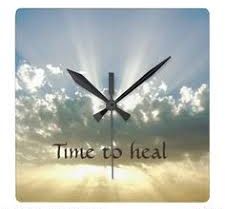
Abuse Past or Present
You Dont Have To Cope Alone
Abuse
Abuse is when the way others treat you becomes harmful to you.
There are many different types of abuse. While the more commonly known forms include domestic violence, child abuse and emotional abuse, any behaviour towards someone that causes deliberate harm or upset can be considered abuse.
Abusive behaviour can have a significant impact on our mental health and well-being - not only at the time of the abuse, but there can be lasting effects throughout a person’s life.
Counselling can help you address how this has made you feel and work through your feelings,
Anyone who has experienced abuse (in whichever form) will require emotional support of some kind. But, everyone’s needs will vary.
Whatever your situation, it can be beneficial to seek help from a counsellor in order for you to see a way out and escape from a cycle of powerlessness.
You deserve to be listened to with respect and without being judged if you choose to talk about your experiences.
Counselling offers you a safe space to talk, without fear and without judgement. Help you understand your options for moving forward.
Abuse can come in many forms. Make sure you're aware of what to look out for by recognising the following types of abuse
Types of abuse
Physical abuse
Physical abuse is causing intentional harm or injury to another person through violence or physical contact. Anyone can be affected by physical abuse
Physical abuse can include, but is not limited to:
pushing • biting scratching • burning sexual assault • throwing objects choking • hitting
There can be a great deal of fear which in turn can sometimes stop people from reaching out. Because of this, physical abuse can often go unreported.
Emotional abuse
Emotional abuse is often difficult to identify as there are no visible marks or injuries left on the victim. This form of abuse often allows the abuser to gain power over the other through demeaning words and gestures.
Generally, emotional abuse can be put into three categories.
Aggressive: This can include name-calling, blaming, accusing, and making threats
Denying: This can include manipulation, neglecting, withholding affection.
Minimising: This can include belittling feelings or thoughts, isolation.

Abuse of any type is never Your fault
Its is important to know that what happened to you was not your fault and you are not to blame no matter how the situation occurred.
Sexual abuse
Sexual abuse can range from unwanted touching or photographing, to being pressured to do a sexual act without consent. Many people who have been abused sexually will know the abuser. They will often be a relative, friend or partner (past or present).
Rape and sexual Assault
Rape and sexual abuse are acts of control and/or violence.
Every situation is unique and although your feelings are individual to you, they are experienced by many people who have suffered sexual violence.
People can experience a number of different feelings. These could include:
- A sense of being numb
- Anger
- Confusion
- Self blame/guilt
- Feeling strangely calm
- Fear/anxiety
- Loss of control
- Disbelief
These are just a few examples of what may be experienced, and feelings are likely to change as time passes. It is never too late to get help for what you have been through. It may feel overwhelming and confusing about what to do next, we are here to help you to explore your options.
A common misconception is that men cannot be raped /sexually abused: this is untrue.
Anyone can be a victim of sexual abuse and nobody should feel pressured into doing something they do not want to do.
Working with an experienced counsellor after sexual violence is an important step in accepting the event and being able to move on with your life.
I have specific training in the impact of sexual abuse, dissociative identity disorder and rape crisis work, enabling me to understand your experience and support you to move on with your life.
Domestic violence
Domestic violence describes any incident of threatening behaviour, violence or abuse between two people who are, or have been, in a relationship. It also covers family members, whatever their gender or sexuality. The abusive behaviour may be psychological, sexual, emotional, physical or financial. Its aim is to maintain power and control of one person over another.
I can help you assess options around what do about a violent relationship and learn what steps to take next. I can also support you into finding specialist agencies and professionals are also available for help and support.
Child abuse
Statistics show that every year thousands of children are abused physically by a parent or someone they know. Child abuse is characterised by any actions of a carer that could potentially harm a child’s mental or physical health.
The main areas of child abuse are as follows:
- Physical abuse
- Child labour/exploitation
- Neglect
- Sexual abuse
- Abandonment
- Emotional abuse
Some people live with the effects of an event that happened in their childhood, especially if they didn’t (or couldn’t) seek support when it happened.
Childhood abuse, in particular, can have a huge impact on a person’s mental health and well-being.
Talking about these issues with a professional can help you process past emotions and help to address issues of trust and anger that may resurface in later life.

Grief, Bereavement & Loss
I can help you explore your feelings in a safe and trusted way.
If you have experienced the death of someone who was important to you, you might be finding it difficult to adjust to the changes happening in your life right now. Grief can shake everything up your beliefs, your routines, and even your sense of normality.
Talking about the loss often allows a person to adjust to their new life with all its changes - good and bad. Keeping things bottled up or denying the sadness could prolong the pain. Any loss has to be acknowledged for us to move forward. Counselling aims to help people find a place for their loss so they can carry on with life and eventually find acceptance.
What is bereavement?
Bereavement is the time we spend adjusting to loss. There is no right or wrong way to feel during the bereavement period - everyone copes in their own way.
When a loved one suddenly leaves your life, it's not a case of taking time out to recover. 'Recovery' suggests that you will emerge exactly the same as you were before. In reality, all of your experiences shape the person you are, and experiencing the death of someone you care about often has the biggest impact.
Bereavement is accepting what happened, learning to adjust to life without that person and finding a place to keep their memory alive while you try to get along as best you can.
Losing someone close to you brings waves of complicated emotions that may be totally overwhelming. Whatever you are feeling at any one time, it is normal... Your mind and body are processing what is happening to you, and you need to allow yourself time to grieve.
Its important to remember that there is no order of feelings you may be experiencing.
There is no right or wrong way to feel, the way in which you grieve is as unique as your finger print.
So what are the so called stages of bereavement?
During bereavement, it is important to find ways to mourn our loss and express our grief. This can be a confusing time involving a lot of powerful emotions. These emotions can grow, fade and shift as we move across the different stages of bereavement.
Not everyone experiences the same stages of bereavement at the same time or in the same order, though most people generally go through the following four stages at some point
Accepting that your loss really happened
Experiencing the pain that comes with grief
Trying to adjust to life without the person who died
Most people go through all of these stages, but not everyone moves between them smoothly. Sometimes, people get stuck on one stage or even take a step back. and find it difficult to move on.
How Bereavement counselling Can Help
Bereavement counselling is designed to help people move through the stages of bereavement and learn how to cope with the death of a loved one. Specifically, counselling for grief and bereavement can:
- Offer an understanding of the mourning process
- Explore areas that could potentially prevent you from moving on
- Help resolve areas of conflict still remaining
- Help you to adjust to a new sense of self
- Address possible issues of depression or suicidal thoughts
You will probably never stop missing the person you lost, but with enough time and the right support, a new life can be pieced together and purpose can be reclaimed.
Bereavement counselling aims to get you to the point where you can function normally - however long it takes.
Coping with grief
Many people compare their grief to waves rolling onto a beach. Sometimes those waves are calm and gentle, and sometimes they are so big and powerful that they knock you off your feet completely. Sometimes, the wave of grief can be so powerful that it leads to
- Not wanting or feeling able to get out of bed
- Neglecting yourself - not taking care of your hygiene or appearance
- Not eating properly
- The feeling that you can't carry on living without the person you've lost
- Not feeling able to go to work
- Taking your feelings out on other people
All of these reactions are normal parts of grief & bereavement - unless they go on for a very long time. If you feel like you are no longer coping with grief very well or are recognising the following behaviours,
you may need some extra help if you others notice that;
- You are beginning to drink a lot
- You are having suicidal thoughts
- You are acting recklessly
- You are starting to behave violently
Grief and bereavement take time, a gradual process as you come to terms with the loss and find an acceptance so you may move forward.
Loss stays under the surface of our lives and continues to remain long after it first happened. Sometimes all it takes is a certain date, a place, or a song, for all of that grief to come surging back.
How to tell if grief has become depression?
Unlike depression, grief is not considered a mental health condition. Sorrow, anger, confusion and emptiness are natural reactions to death and loss. However, when these low feelings last for a very long time, it may be worth seeking additional support. Of course, as I said earlier, there is no 'normal' length of time for bereavement.
So how do you know if grief has become depression?
Grief and depression share a number of symptoms, including sadness, insomnia and change in eating habits.
One of the main differences between grief and depression however, is that grief comes in waves while depression is like a cloud that hangs over everything. Sometimes, a grieving person is able to forget their sadness for certain lengths of time - perhaps when concentrating on something, perhaps when surrounded by people who make them feel happy. Grief is often triggered by something - a smell, a sudden memory - while depression is pervasive, cutting through everything.
Signs that grief has turned into depression include:
- Feelings of guilt unrelated to your recent loss
- A feeling that you are worthless
- Feeling sluggish, drained and confused
- Difficulty carrying out everyday tasks
If you think you, or someone close to you, is suffering from depression, then it is important to find support as soon as possible.
Suicide grief
All loss is devastating. However, grief after suicide can be a particularly complex process.
Family and friends left behind when someone dies by suicide often experience confusing feelings. Self-directed anger and guilt are natural reactions. It's easy to start blaming yourself and wondering if you could have done something to help. It's also natural to feel angry at the person themselves, asking why didn't they tell you how they were feeling?
While we will all process grief in different ways, there are typically three common stages of grief after suicide.
1. Numbness or shock
At first, you might feel like you've stepped into a slightly different dimension. Everything may feel different and it's possible that you'll even want to distance yourself from others to avoid facing what's happened.
2. Disorganisation
Eventually, you come to a point where you'll be ready to address what's happened. You might feel lonely and deeply sad at this point. People often have trouble eating, sleeping and functioning normally. It's during this stage that people tend to go over the days leading up to their loved one's suicide, agonising over what they could have done and why it happened.
3. Reorganisation
Over time the initial shock and horror of the situation begins to fade as your loss becomes a part of your life. You will begin to get back into the day-to-day swing of things and soon you will be able to focus on other things in your life.
Whatever the circumstances, know that one day, it is possible for you to find happiness again. By creating a place to keep the person you lost, and finding ways to remember them (like anniversary celebrations, or leaving flowers at a memorial site), you should be able to preserve their memory and honour the impact they had on your life, without letting their absence obscure your own future. With time, pain does settle.
Loss comes in many forms, weather it be an item, relationship & even the loss of a pet can have a major psychological effect.
Working through your feelings with a therapist can help you come to terms with your loss. Working towards learning to adapt and live without your loved one.
When a Child Dies
Stillbirth, Neonatal death & Sudden Infant Death
A child’s death causes a profound family crisis.
It shatters core beliefs and assumptions about the world and the expectations about how life should unfold.
The overwhelming suffering and intense emotions that flood the days, weeks, months, and years following the loss is called grief.
The pain of grief is extremely intense as parents digest the finality of never seeing their child again and the loss of future hopes and plans.
Some emotions of grief can be shared with others, while other intense feelings of loneliness or guilt, may never be put into words. The ways in which feelings and emotions of grief are experienced and expressed differ from person to person.
Common feelings may include guilt, anger, fear, emptiness, sadness, loneliness & depression
Some parents may have a more difficult time during the grief process following the death of a child requiring professional help. Some signs of problems resulting from processing of grief could include
- Inability to cry,
- Ineffective in expressing feelings of sorrow,
- Unable to talk about their deceased child,
- Prolonged deep depression,
- Poor self-esteem,
- Persistent guilt,
- Excessive anger, or
- Exaggeration of any of the other usual grief responses.
If there is no one to share feelings and experiences with or you are worried about the intensity or duration of grief, you may it helpful to talk with a counsellor.
Many people feel that they can’t overburden their friends with their grief, therefore, counselling gives the opportunity to talk to about your feelings in a way that is not usually possible with even the closest of friends.
Please feel free to contact me for further support.
I am here to listen and support you during this devastating time.

The death of a child is devastating and often referred to as the worst experience a parent can endure.
Life throws us many curve balls and sometimes we need a hand catching them, so never be afraid to reach out for support.

Infertility &
Issues Getting Pregnant
Infertility has been a source of sadness and despair since the earliest times,
Feeling that your body is suddenly working against you can be a very painful realisation, and on top of this you may then also be expected to make extremely difficult decisions regarding your future.
Should you try again? Or is it time to start thinking of other ways to start a family?
So what is infertility?
Infertility by definition, is a difficulty in conceiving despite having regular unprotected sex.
How could infertility counselling help
Research has shown that infertility often has a stressful impact on relationships and can affect a couple’s sex life.
The condition is isolating and can impact on how a couple communicate with each other and with the people around them.
There can be a profound sense of loss and grief which can impact on closeness.
Infertility can also carry with it a sense of denial with sadness and shock borne individually when pregnancy does not materialise.
There can also be feelings of fear, guilt and abandonment from the partner who feels the problem lies with them. Women can feel less feminine and men can feel less masculine in the face of infertility.
Infertility can also put stress on your relationship, with studies showing that couples dealing with infertility are more likely to feel unhappy with themselves and their relationship.
It is important to express the feelings of sadness, loss and anger. you are not alone.
Many people feel that they can’t overburden their friends with their sadness, therefore, counselling gives the opportunity to talk to about your feelings in a way that is not usually possible with even the closest of friends.
I am experienced in working with infertility and also fully trained in this type of counselling.

Miscarriage & Pregnancy Loss
Miscarriage is often referred to as ‘invisible grief’
Miscarriage is not widely spoken about and usually occurs before the woman has told anyone but closest friends she is pregnant. As with any type of distressing life event, different people will face the loss in different ways.
Early Pregnancy loss including Ectopic Pregnancy and Terminations due to diagnosed medical conditions are more common than most people imagine, with as many as one in every four pregnancies ending this way. It is a significant and very painful loss for those who experience it.
Understandably, some people are reluctant to talk about this upsetting experience. Some wish to put the loss behind them as quickly as possible, while others need to process the feelings more slowly. Talking about what has happened in a confidential and safe environment can help. Speaking to a counsellor can give you an opportunity to express and accept your feelings about what has happened, in your own time.
Coping with your miscarriage without being given an exact reason as to why it happened can be extremely difficult. Usually, understanding why something has happened helps us to make sense of it.
The Emotional Impact Miscarriage can have
A miscarriage can have a profound emotional impact, not only on the woman herself but also on her partner, friends and family.
You may feel stuck and unable to move forward after a miscarriage and this is completely normal. The emotional trauma can lead to feelings of anxiety or depression and it’s thought that as many as four in 10 women report symptoms of post-traumatic stress disorder (PTSD)
It’s important to remember that all bereavements require a period of mourning and miscarriage is no different. This can take longer for some people than for others - there is no right or wrong way to feel after a loss.
Loss & Grief Counselling
I have a vast amount of experience supporting people with pregnancy loss and the death of a child.
I can help you to accept your feelings, whatever they may be, without making a judgement about whether the feeling your experiencing are right or wrong.
Many people feel that they can’t overburden their friends with their grief, therefore, counselling gives the opportunity to talk to about your feelings in a way that is not usually possible with even the closest of friends.

Deciding To End a Pregnancy
There are many reasons why someone may end their pregnancy,
In Great Britain, the law allows women to do so at up to 24 weeks of pregnancy.
This experience can be a difficult one, and some people may benefit from speaking to a counsellor. This section offers advice when you may be considering to get an abortion, what to expect before and after the procedure, and how counselling could provide added support for those who need it.
Deciding to end a pregnancy
In some cases, women may feel certain about their decision to end a pregnancy. Others, however, may find it more difficult. If you’re considering an abortion, it’s important to remember that the decision is yours.
There is support and information available if you’re finding it hard to decide. You can speak to your doctor and organisations such as the British Pregnancy Advisory Service (BPAS) and Marie Stopes UK.
You may want to speak to friends or family members, but remember that you don’t have to speak to anyone you don’t want to and that the ultimate decision is yours alone.
Your next steps
If you have come to the decision to end your pregnancy there are several ways you can get an abortion. You can visit your doctor who will refer you to an abortion service. You can visit your local family planning clinic, GUM clinic or contraception clinic. You can also contact an independent abortion provider directly.
In the majority of cases, women will not experience long-lasting feelings of sadness or guilt - but if this is something you are experiencing please know that you’re not alone - post-abortion counselling could offer support.
Abortion counselling
Counselling after an abortion provides a safe space to talk through the different emotions you may be feeling. If you are struggling to show yourself compassion we can work together to find peace.
Sometimes post-traumatic stress can be a factor in your recovery and counselling could help you learn relaxation techniques, emotional regulation and coping strategies.
The decision to end a pregnancy is seldom easy, but there is help available.

Relationship Issues
Humans are naturally very sociable. We enjoy the company of others and crave positive interactions and meaningful friendships.
“Every relationship is different but there are main factors that contribute to strong relationships. Each relationship is built around trust because this enables us to communicate effectively and form strong bonds. A good relationship comes with a level of mindfulness that makes you aware of what you say and do and that helps to support a strong relationship.”
In some cases, our relationships may not be meeting our expectations, which can, in turn, impact our happiness and life satisfaction. Relationships can be very one-sided and if the two people are not seen as equals, problems can occur.
Relationships can come under strain for a variety of reasons and, when we experience stress or emotional strain, it can cause us to think and behave in ways we wouldn't naturally.
Of course, all relationships are unique, and that’s part of the beauty of them.
But there are several characteristics that generally mean you have a strong, healthy connection with someone.
These may include:
Trust - Relationships are built on trust, which is essential for good communication and forming strong bonds with people. Without trust, relationships are unlikely to survive.
Mindfulness - If you’re mindful of what you do and say, and of the other person’s needs, you’re more likely to maintain strong relationships.
Mutual respect - As mentioned above, strong and supportive relationships rely heavily on mutual respect. You need a mutual understanding of each others’ needs and values, and to consider these regularly.
Good communication - Your relationships will be richer if you make an effort to keep in contact with those around you. Being honest and open with others also allows for you to connect deeply and build long-lasting bonds.
In order to bring about change, something different needs to happen between the couple. That change may relate to behaviour, approach or thinking process. For there to be a shift in the relationship, it may be helpful to introduce a new behaviour pattern or approach to dealing with a troublesome issue. One such change can be to recognise the importance of listening rather than talking or responding.
Separation & Divorce
Taking the decision to end a relationship is difficult, no matter what your circumstances are. Not only are there a lot of deep-rooted emotions involved, there are often a lot of practicalities to consider, which can make it an especially difficult transition to make in life.
There are many reasons why a couple may choose to separate but, ultimately, divorce and separation are admissions that a relationship no longer works. Despair and loss of love visit most relationships - a divorce is often used as a bid to leave the despair and disappointment behind.
Arguments
Many couples argue for one reason or another, whether it’s over belongings, children or money. It’s important to remember, though, that there is a difference between arguing and being assertive.
Moving on after separation
Acceptance issues are quite prevalent in separation and divorce. It can be difficult, but you need to think of a way that you and your ex-partner can accept what’s happening with the intention of moving forward.
Whatever the relationship issue, there is help available. Relationship counselling is one option - whether as a couple or an individual - you can talk about your concerns and your needs, and explore what you want from your relationships. By speaking to a professional, you can learn more about yourself while also receiving the support and guidance you may need to get back on track.
I can help you address these feelings with the intention of moving on.

Sexual Difficulties
Experiencing sexual problems at some point during your life can be perfectly normal. While everyone’s problems and sexual experiences can be different, it’s important to remember that many people do too. its just that we don't tend to be open about it to friends.
If you are experiencing problems with sex, you may feel alone and helpless, or even embarrassed, ashamed, or afraid. These are common things felt by people living with sexual dysfunctions. Feeling this way can lead to people waiting months or even years to seek help and support, as they are too afraid to discuss their worries and experiences with others.
If you are worried you may be experiencing sex and intimacy problems, it’s important to speak up and seek help. The longer you wait, the more time your problems have to get worse or develop consequences. Reaching out and seeking help can be scary, but it’s the first step towards finding out what is causing you problems and in helping you to fix or manage them.
Saying things out loud to another person can feel like a tremendous relief, and feels completely different from the thoughts going around in your head.
There is something about the process of speaking about issues that feels very different. Please feel free to contact me and take the first step into feeling better and having a clearer outlook on you relationship
A number of different things can cause you to develop sexual problems. Generally, problems develop due to a combination of physical, emotional, psychological and situational reasons. These can include:
Physical factors: disabilities, illnesses or long-term conditions such as diabetes, heart disease, drug or alcohol addiction.
Psychological: many different mental health issues can negatively impact your sexual desire and responses. These can include anxiety, depression, stress, and more.
Emotional: feelings of betrayal, unhappiness in your relationship. If you have low self-esteem, this may also be having a negative impact on your levels of sexual desire and desirability. Past traumatic experiences with sexual abuse can also have a greater effect than you may realise, and may leave you feeling unable to fully enjoy or participate in sexual intimacy.
Situational: changes in your day-to-day life, circumstances, or living situation can all contribute to the development of sex problems. For example, if you have recently moved, are having financial problems, or have had a child, this could have a significant impact.
Some of the signs that sex problems are affecting your relationship include:
- Sex causes disappointment.
- Sex is the cause of rows.
- One or both partner are feeling dissatisfied or stuck in a rut.
- Couples start drifting apart and losing touch
- One or both partners feels taken for granted or neglected.
- Affairs and betrayals
Our problems with sex can feel very personal, however many of us face similar issues and struggles due to our experiences, situations, worries, or gender. Many common sex problems for men and women can be addressed, improved, and even overcome with the help and support of counselling.
Loss of intimacy and relationship problems
Experiencing different levels of desire during the course of your relationship can be a common issue. While many find a way to compromise, for some, a sudden increase or decrease can lead to communication difficulties or feelings of rejection.
Common issues affecting women.
Loss of desire
It is common for women to experience lack of sex drive at certain periods in her life - particularly during pregnancy and times of stress - but some women may have it more persistently. Again, there are several psychological and physical factors that can cause this, including diabetes, relationship problems, hormone disorders, depression, excessive tiredness, traumatic sexual experiences and drug and alcohol addiction. Lack of sex drive is also linked to a reduction in a woman's natural testosterone levels.
Pain during sex
Also known as dyspareunia, pain during sex can be very common for women who have gone through, or are going through the menopause.
In some cases, women experiencing pain during sex may have vaginismus - a distressing condition characterised by an involuntary spasm of the muscles that surround the entrance of the vagina.
Common issues affecting men
Ejaculation problems are very common and men will typically experience one of three types of disorder:
Premature ejaculation: when you ejaculate too quickly during sexual intercourse.
Delayed ejaculation: a delay in achieving ejaculation, or where a man is completely unable to ejaculate during sexual activity. Also known as male orgasmic disorder.
As with the female sex problems, male sexual dysfunction such as premature ejaculation is linked to psychological and/or physical factors.
These include stress and previous sexual trauma as well as medical conditions.
Speaking with a qualified counsellor can help you to process your emotions and make a positive step towards the next stage of your life. Encouraging you to take a new, objective view of your personal history, allowing you to reflect clearly on your present situation without feeling blame.

Infidelity & Affairs
Affairs and betrayals can severely strain any relationship.
Whether it's infidelity, financial secrets, threats to leave, gambling or even drug/alcohol abuse, betrayals of any kind can break trust and greatly affect the well-being of everyone involved.
These situations can be deeply upsetting and it can be hard to see a way forward at the outset. But, with a little time and effort, It can be possible to put this behind you and find peace again.
Questioning
The discovery of an affair can trigger the onset of many questions, particularly for the person who has been betrayed.
You may feel great confusion and uncertainty regarding the relationship and the person you thought you could trust.
As for the person who committed the betrayal, they too may be feeling confused, distressed and guilty over the discovery of their wrongdoing - especially if it was not their intention to hurt the other person.
Speaking with a qualified counsellor can help you to process your emotions and make a positive step towards the next stage of your life.
Encouraging you to take a new, objective view of your personal history, allowing you to reflect clearly on your present situation without feeling blame.
Child & Young Peoples Counselling
Child related issues
Children and young people, and their families, can sometimes need extra support if they are finding it difficult to deal with or understand their emotions or behaviour. Children can find it hard to express their worries, and unresolved problems may extend into their adult lives.
Benefits of child counselling
A child experiencing a mental health problem, or experiencing something they don’t understand; how can they possibly know where to turn?
Counselling gives the child the opportunity to talk about how they feel without the fear of judgement. Speaking to a counsellor, away from their home and school life, can take away some of the pressure. Counselling offers a safe environment for children to express their feelings and understand what may have caused them to feel this way
The methods used in sessions will depend on the child’s age, situation and their development.
Although different methods may be used for child counselling, the aim of counselling for both children and adults is the same; to help the individual cope better with their feelings and to enjoy life again
Benefits of child counselling
A few examples of how counselling can help children include; coping with everyday worries, such as exam stress, and relationship issues with friends, family members and teachers.
Counselling can also help with self-harm concerns, grief, depression and anxiety, and learning difficulties, to name a few.
Really, if something is making your child unhappy, however small you or they feel it is, it’s important.
Know that help is available - counselling allows your child to talk to someone about what’s on their mind safely and confidently, without fear of judgement.
I can support your child with a wide variety of issues including but not limited to;
- Bullying
- Peer pressure
- Anxiety
- Panic attacks
- Learning difficulties
- Behavioural problems
- Family relationships
- Sexual & Identity issues
- Depression and anxiety
- Bereavement/loss
- Attachment disorder
- Separation anxiety
- Self Harm
- Suicidal Thoughts & Feelings


Coping With Suicidal Thoughts
I can support you with your suicidal thoughts and feelings when you are not in crisis or at risk of acting on your thoughts
If you need immediate help and are worried you can’t keep yourself safe, please:
Go to your nearest A&E department
Call 999 if you can’t get to a hospital
Ask someone to take you to A&E or call 999 for you
If A&E isn’t an option, or you just want to talk to someone, Call the Samaritans on 116 123.
About Suicidal Thoughts and Feelings
Whatever form they take, suicidal thoughts can be incredibly scary, overwhelming and confusing. If you’re experiencing these types of thoughts, please know that you’re not alone (many people think about suicide during their life) and that help is available.
Everyone experiences suicidal thoughts differently. It may be that you feel unable to cope with what’s happening in your life. For many, it’s less about wanting to die but instead feeling unable to continue living the life they currently have.
You may find the feelings come and go, or like they build gradually over time. Not understanding why you feel this way is very common
Here are some examples of how suicidal thought can make you feel:
- Overwhelmed and tearful
- Unwanted or unneeded
- Hopeless, as if you see no alternative
- Like your loved ones would be better off without you
- Physically numb
- Feeling disassociated.
When you’re feeling this way, you may experience the following:
- Difficulty sleeping
- Change in appetite
- Urges to self-harm
- Wanting to isolate yourself from others
- No desire to take care of yourself
If this is resonating with you, you may feel as if you’ll never get ‘back to normal’ or experience happiness again. With help and support, most people who have experienced suicidal thoughts can recover, living full lives.
Telling someone how you feel is the first step to getting the support you deserve. Remember, we are all worthy of help and support.
If you’re not sure how to tell someone, you may find it helpful to print out this page for them to read. This can help them understand how you’re feeling and how they can support you when you feel like this.
What can help?
If you are experiencing suicidal thoughts there are several things you can do right now to help and longer-term plans to help you feel better.
Right now;
Make yourself safe - Your priority when you feel suicidal is to make yourself safe. This means removing anything you could use to harm yourself (or asking someone else to remove it) or removing yourself from a dangerous location. If you have a safety/crisis plan, follow it.
Get through the next five minutes - Make things less overwhelming by focusing on small chunks of time. Focus on just getting through the next five minutes, then reward yourself and move onto the next five minutes.
Distract yourself - If you feel an urge to hurt yourself, try distraction techniques. These include; holding an ice cube until it melts, focusing on how cold it is, writing down how you feel and tearing up the paper, focusing on your five senses, taking slow, deep breaths.
Challenge your thinking - Write down some things you have coming up that you’re looking forward to. This may be watching a new film you’re excited about, seeing a loved one or eating something delicious. Make plans to do something you enjoy tomorrow.
Speak to someone - Visit or call someone and tell them how you feel. If you don’t have anyone to talk to, try a helpline like Samaritans - they are available 24/7 and will listen without judgement. Know that you are not a burden on anyone, loved ones and helpline volunteers will want to support you.
USE YOUR SENSES TO COPE
Your 5 senses are powerful tools. They can really lift your mood if you’re going through a difficult time or feeling suicidal. Here are some ideas.
See
Create a space in your room or diary and fill it with pictures or things that you like - the things you feel good about. You could look at old pictures that bring up good memories. Or watch one of your favourite films.
Hear
Put on the music you love. It could be something soft and soothing. Or it could be loud and exciting. Whatever you’re into. If you're not in the mood for music, try going to a park and just listening to the sound of birds and trees. Focusing on these noises can help block out worrying thoughts.
Smell
Everyone has a few favourite smells. So think about what smells you like and try to enjoy them when you're feeling down or stressed. Take your time to breathe them in. Focus on the smell and try to block out your other thoughts. It could be a certain perfume or shampoo. Maybe oranges, toast or food being cooked. Or it might be the smell of freshly cut grass.
Taste
Have your favourite meal. Or you could eat something you used to love, but haven’t had in a while. Try different flavours and textures.
Touch
Touching different things can make you feel a connection with the world around you. And can also take your mind off worrying thoughts. Run your tongue around your mouth and feel the different surfaces. Gently touch walls in your home. Feel the zip or buttons on clothing. Have a bath. Stroke your pet. Give yourself a hand massage or feel the texture of each of your fingernails. Exercise or lift weights. Go for a walk or run.
In the long-term
Talk to your GP - If this is the first time you’ve felt like this, booking an appointment with your GP is a great first step. They can refer you for talking therapies, prescribe medication where necessary and put you in touch with specialist services like a community mental health team.
Consider talking therapy - Talking therapies are offered by counsellors and can help you understand why you feel the way you do and help you find ways to resolve/cope with your feelings.
Peer support - This means talking to other people who have had similar experiences to you. Many people find support networks online helpful for this, though you may prefer to meet in person if there are support groups in your area. Big White Wall and Elefriends are great places to start when looking for peer support.
Make a safety plan - This is a plan to help you when you have suicidal thoughts. This plan might include your warning signs, coping strategies that help you, numbers of people to call in a crisis and the steps you need to take to make yourself safe. You may find it helpful to make this plan with your doctor or counsellor.
Remember suicide is a permanent act to a temporary problem or feeling.
It will pass and with the right support you can begin to feel strong enough to see the future that is out there waiting for you.
Please know, that you are not alone, there are people wanting to listen and support you.
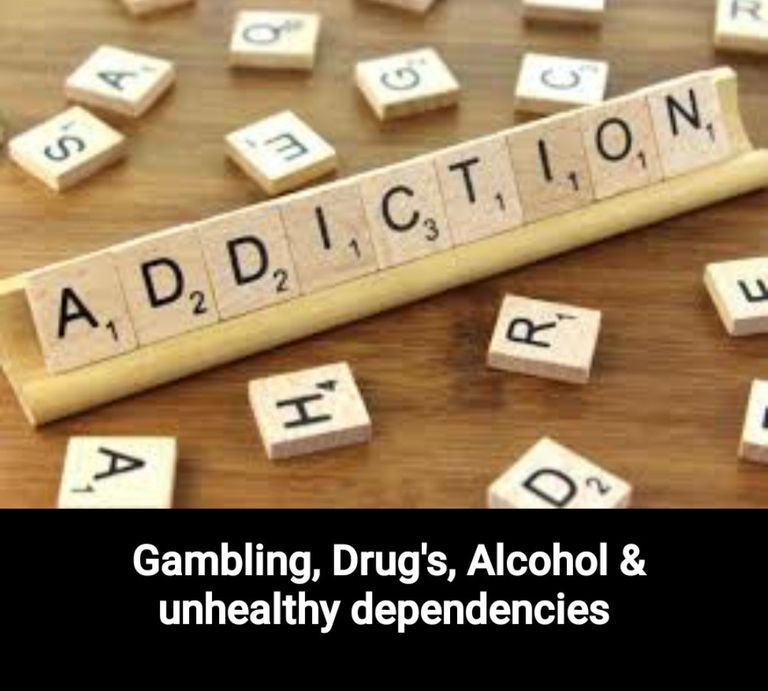
Addiction
Addiction
Addiction refers to a difficulty in controlling certain repetitive behaviours to the extent that they have harmful consequences. They are the result of powerful compulsions to use and do certain things excessively, often out of a need to escape from upsetting emotions or situations.
Addiction is less about giving up something, and more about gaining something,
Something that is more meaningful, authentic and connected to a contented way of living your life.
Addiction treatment, such as counselling, helping people recognise the problem and take the steps to recovery.

Common Addictions
Drug abuse or addiction is an unhealthy dependence on a medication or vocational drug. Characterised by an intense psychological and physical dependency that develops when persistent use triggers changes in the brain, recovery is possible.
Gambling is an activity where people take part in a game by placing something of monetary value at risk in order to win money or a prize. While a common pastime for many, gambling can in some cases develop into an unhealthy habit that can lead to not only a financial crisis, but poor health and well-being.
Sex and/or porn addiction is typically characterised by compulsive sexual thoughts and acts. While for most people these behaviours will sit within everyday life without causing any issues, for others these urges become uncontrollable and addictive behaviour can develop - often leading to personal, financial and professional problems.
Alcoholism, also known as alcohol addiction or alcohol dependence, describes the repeated use of and dependence on alcoholic substances. Thought to be caused by cognitive and physiological dependence. It can lead to extensive tissue damage and disease across the body.
Internet addiction is described as an impulse control issue where users may develop an unhealthy emotional attachment to online friends, activities and the worlds they can create online. Internet addiction like other addictions can have a massive impact on a person’s well-being, including their mental and physical health, relationships and social lives.
Smoking is one of the greatest causes of illness and premature death in the UK. Quitting smoking is a big challenge for a person to face, and they will often need more than just willpower.
I can offer you support with addiction issues
Getting help In some cases, the harm of an addiction may only be recognised when the individual in question experiences a crisis - either as a result of a major life consequence or when the addictive substance or behaviour is suddenly unavailable.
This is typically what motivates individuals to seek help, but there are those who will be able to kick-start their recovery long before the problem reaches crisis point.
If you are the person with the problem, you may not feel comfortable speaking to friends or family, but know that there are many other resources available to you.
You may also want to consider visiting your doctor, who can answer any questions you may have about your addiction, and explain the next steps you can take.
The first step in seeking help for addiction is usually to speak to someone about how you are feeling.
Im here to listen

